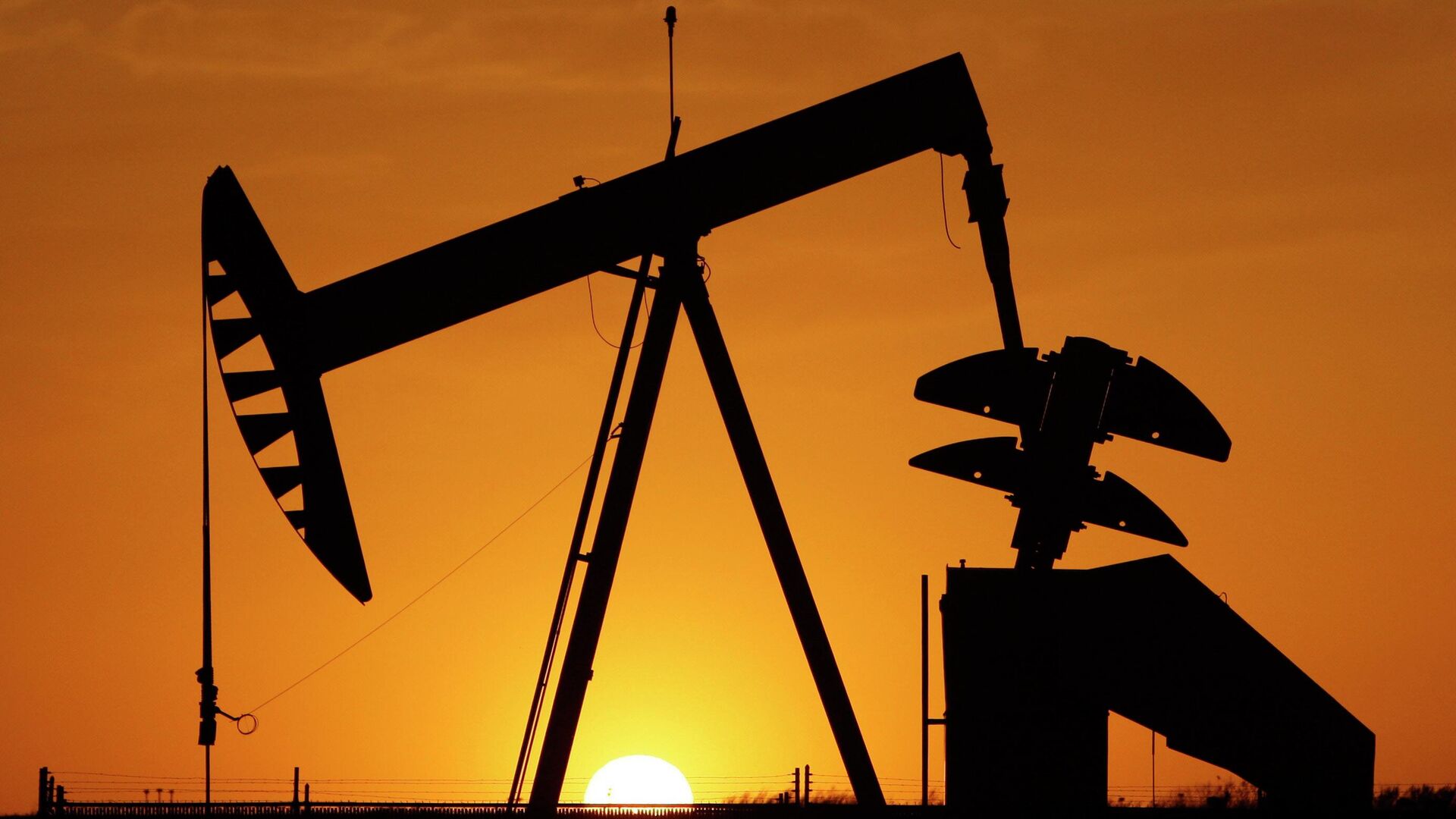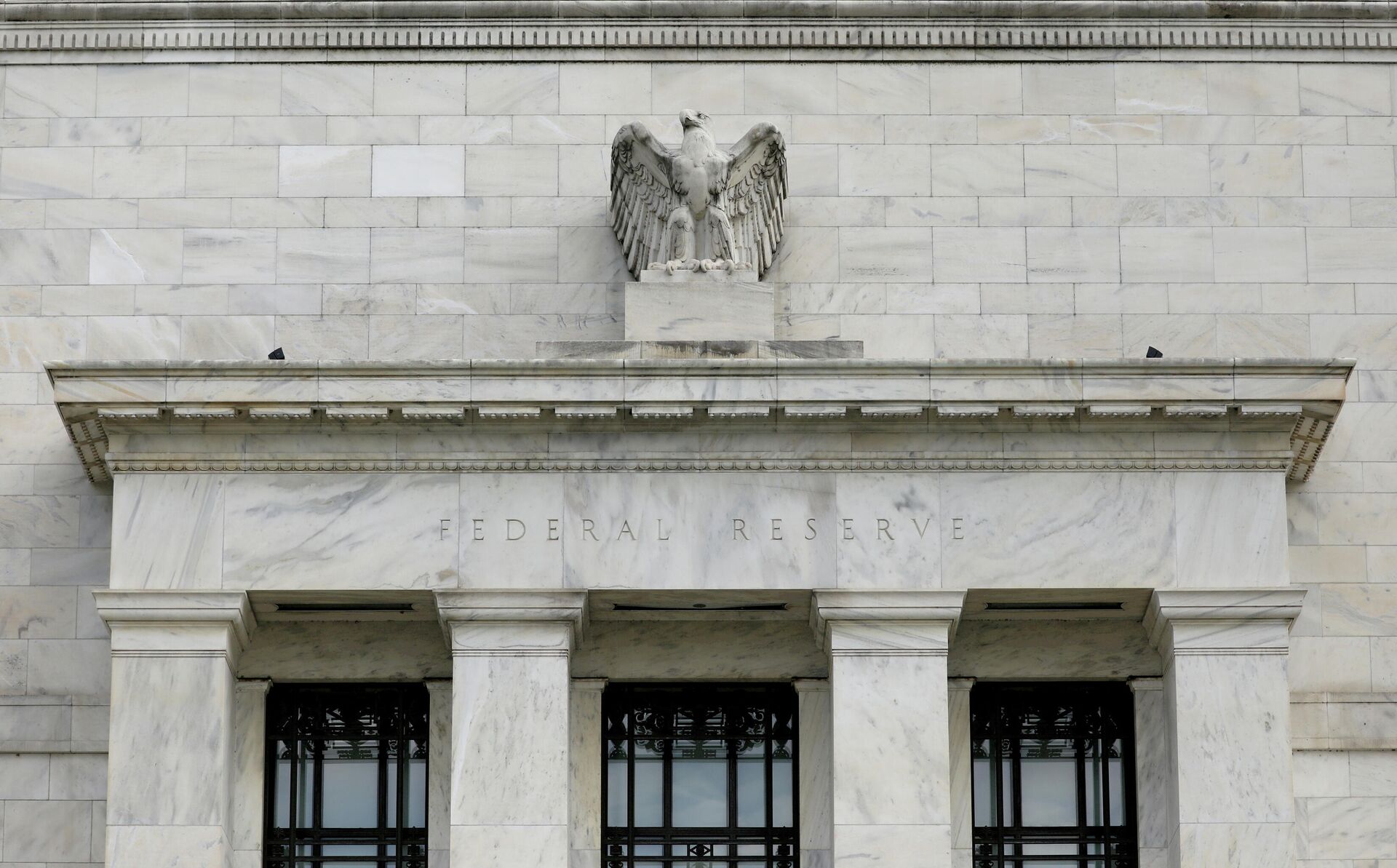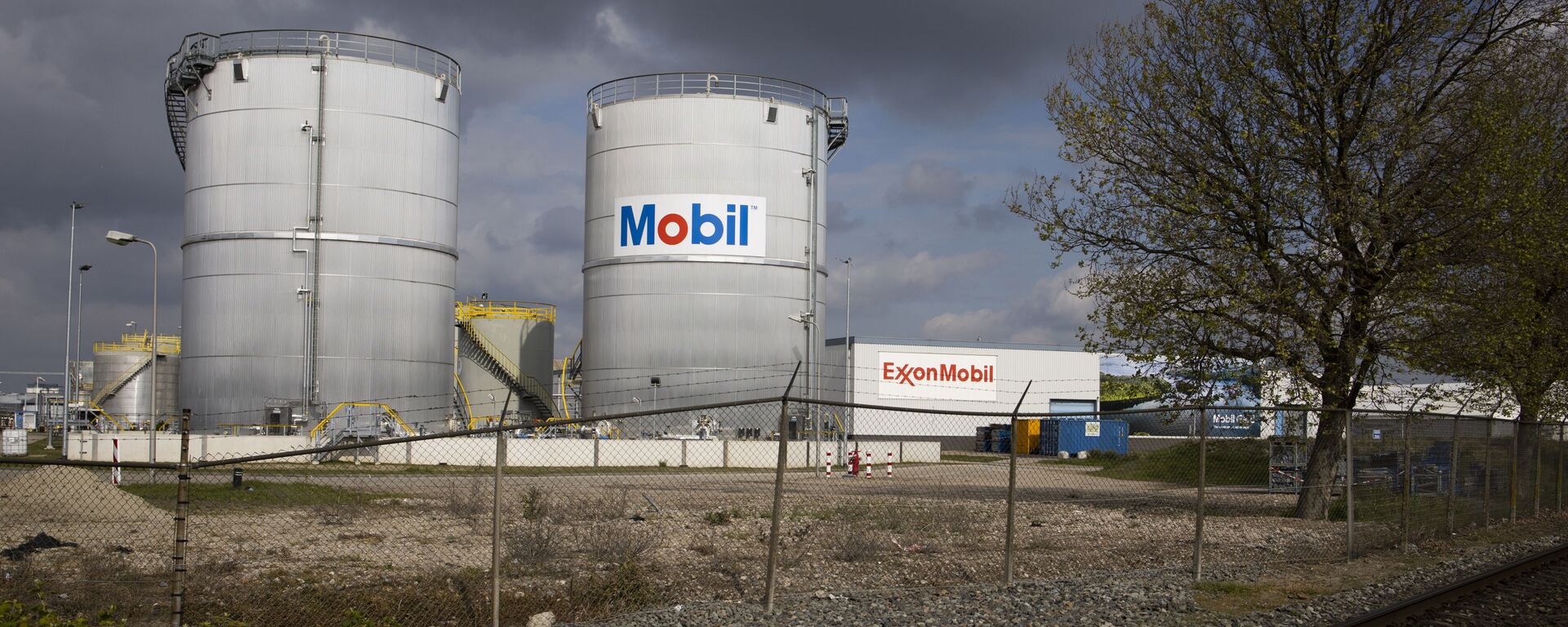https://sputnikglobe.com/20220612/inflation-oil-prices-will-continue-rise-crisis-fully-owned-by-biden-say-analysts-1096240924.html
Inflation, Oil Prices Will Continue Rise, Crisis Fully Owned by Biden, Say Analysts
Inflation, Oil Prices Will Continue Rise, Crisis Fully Owned by Biden, Say Analysts
Sputnik International
US President Joe Biden on 10 June lashed out at the US oil industry - and ExxonMobil in particular - for not producing enough to curb the spike in petrol... 12.06.2022, Sputnik International
2022-06-12T13:03+0000
2022-06-12T13:03+0000
2022-11-15T14:22+0000
us
world
opinion
gasoline
joe biden
vladimir putin
us midterm elections
us democratic party
inflation
oil
https://cdn1.img.sputnikglobe.com/img/07e6/04/13/1094896760_0:99:2768:1656_1920x0_80_0_0_0df8ad0b9d4984ace1e9df7254791f9a.jpg
"The [Biden] administration is focusing on blaming others - Putin, China, oil companies - but it is unwilling to accept its own responsibility for the crisis: its out-of-control spending, its money printing, its decision to advance Trump’s trade war with China and its die-hard environmental regulations which have restricted healthy growth of the domestic energy sector," says Dr Gal Luft, co-director of the US-based Institute for the Analysis of Global Security and a senior adviser to the United States Energy Security Council.According to Luft, "this crisis is fully owned by the White House and no degree of deflection will absolve Biden from it".Inflation remains at a 40-year high in the US with the consumer price index (CPI) rising to 8.6 percent in May, according to the Labor Department. In April the figure edged down to an 8.3 percent annual rate from 8.5 percent in March, triggering hopes that the Federal Reserve's interest rate rises worked. However, the latest spike indicates that the Fed has yet to bring inflation under control.Inflation may reach a staggering 10 percent in 2022 with crude oil and gas prices continuing to surge much higher than present levels well into the future, Dr Mamdouh G Salameh, international oil economist and visiting professor of energy economics at ESCP Europe Business School in London, forecasts.According to Salameh, the US "could encounter the most serious oil price shock": the country imports nine million barrels of oil daily (mbd) and is the most vulnerable of the major economies to price shocks.Blaming US Oil Industry Won't Save the DayMeanwhile, increased drilling by the US oil industry is unlikely to stop the energy prices rally, according to the observers.Likewise, the impact of US shale production on the global economy is virtually non-existent, according to the energy expert.Furthermore, other crude producers are likely to counterbalance Washington's extra oil supplies to the market, according to Luft."If the US produces more, OPEC and Russia will produce less," he says. "Market conditions will always be determined by the price level desired by the major exporters."The Biden administration has yet to convince Saudi Arabia and other OPEC members to pump more. Recently, the White House has changed its tone on Saudi Crown Prince Mohammad bin Salman, whom it used to criticise at the beginning of Biden's term. The New York Times and the Washington Post reported that the US president may visit Riyadh later this month, which some observers described as a "desperate" move. However, Biden said he had "not yet" decided whether he will travel to Saudi Arabia.Neither Biden nor Fed Could Do Anything About Inflation Right NowAlthough the Biden administration has thus far proved that it is incapable of reducing crude prices, it also lacks effective tools to tame inflation in the near future, Luft and Salameh say.On 30 May, Biden outlined a three-part plan to fight inflation which was at a 40-year high in his op-ed for The Wall Street Journal. The president said he wouldn't interfere in the Federal Reserve's plan to curb inflation; urged the US Congress to pass his clean energy tax credits and investments and his Housing Supply Action Plan; increase funding for the Internal Revenue Service (IRS); and end "the outrageous unfairness in the tax code that allows a billionaire to pay lower rates than a teacher or firefighter", among other measures.For its part, the Federal Reserve is expected to raise the Fed funds rate by half a point on 15 June and again next month, according to CNBC. Moreover, there are "expectations policymakers could hike faster and higher" in the wake of the Labor Department's Friday report, the media outlet highlighted on 10 June.Still, the crux of the matter is that it will be impossible for Biden and the US Federal Bank to reduce inflation in time for the US mid-term elections in November, according to Salameh."High fuel prices have proved to be political killers to incumbent presidents," echoes Luft.Americans consider themselves to be entitled to cheap gasoline and will punish any president under whose watch prices spike, and the think-tank co-director warns:
https://sputnikglobe.com/20220611/biden-slams-exxon-mobil-for-making-more-money-than-god-as-inflation-in-us-hits-40-year-high-1096213206.html
Sputnik International
feedback@sputniknews.com
+74956456601
MIA „Rossiya Segodnya“
2022
News
en_EN
Sputnik International
feedback@sputniknews.com
+74956456601
MIA „Rossiya Segodnya“
Sputnik International
feedback@sputniknews.com
+74956456601
MIA „Rossiya Segodnya“
us, opinion, gasoline, joe biden, vladimir putin, us midterm elections, us democratic party, inflation, oil
us, opinion, gasoline, joe biden, vladimir putin, us midterm elections, us democratic party, inflation, oil
Inflation, Oil Prices Will Continue Rise, Crisis Fully Owned by Biden, Say Analysts
13:03 GMT 12.06.2022 (Updated: 14:22 GMT 15.11.2022) US President Joe Biden on 10 June lashed out at the US oil industry - and ExxonMobil in particular - for not producing enough to curb the spike in petrol prices. He also blamed Vladimir Putin for rocketing food and gas costs, after the Labor Department announced on Friday that US inflation reached a whopping 8.6 percent.
"The [Biden] administration
is focusing on blaming others - Putin, China, oil companies - but it is unwilling to accept its own responsibility for the crisis: its out-of-control spending, its money printing, its decision to advance Trump’s trade war with China and its die-hard environmental regulations which have restricted healthy growth of the domestic energy sector," says Dr Gal Luft, co-director of the US-based Institute for the Analysis of Global Security and a senior adviser to the United States Energy Security Council.
According to Luft, "this crisis is fully owned by the White House and no degree of deflection will absolve Biden from it".
Inflation remains at a 40-year high in the US with the consumer price index (CPI) rising to 8.6 percent in May, according to the Labor Department. In April the figure edged down to an 8.3 percent annual rate from 8.5 percent in March, triggering hopes that the Federal Reserve's interest rate rises worked. However, the latest spike indicates that the Fed has yet to bring inflation under control.
Inflation may reach a staggering 10 percent in 2022 with crude oil and gas prices continuing to surge much higher than present levels well into the future, Dr Mamdouh G Salameh, international oil economist and visiting professor of energy economics at ESCP Europe Business School in London, forecasts.
"For the record, the energy crisis that has been enveloping the EU since January 2021 - long before the Ukraine conflict came on the scene - was triggered by the EU’s hasty policies to accelerate energy transition at the expense of fossil fuels," Salameh says. "Likewise President Biden’s green policy is pushing the United States into a similar energy crisis, feeding into rampant inflation that could exceed 10 percent in 2022 and also exacerbating relations with the US oil industry."
According to Salameh, the US "could encounter the most serious oil price shock": the country imports nine million barrels of oil daily (mbd) and is the most vulnerable of the major economies to price shocks.
Blaming US Oil Industry Won't Save the Day
Meanwhile, increased drilling by the US oil industry is unlikely to stop the energy prices rally, according to the observers.
"US shale oil is a spent force," explains Salameh. "Despite rising WTI prices and oil rig count, production will hardly rise beyond 200,000-300,000 barrels a day (b/d) in 2022. The reason isn’t capital discipline as the US Energy Information Administration (EIA) claims. It is because the sweet and most lucrative spots in the shale plays have been exhausted, forcing drillers to move to poor and expensive spots thus raising costs of production and declining production."
Likewise, the impact of US shale production on the global economy is virtually non-existent, according to the energy expert.
Furthermore, other crude producers are likely to counterbalance Washington's extra oil supplies to the market, according to Luft.
"If the US produces more, OPEC and Russia will produce less," he says. "Market conditions will always be determined by the price level desired by the major exporters."
The Biden administration has yet to convince Saudi Arabia and other OPEC members to pump more. Recently, the White House has changed its tone on Saudi Crown Prince Mohammad bin Salman, whom it used to criticise at the beginning of Biden's term. The New York Times and the Washington Post reported that the US president may visit Riyadh later this month, which some observers described as a "desperate" move. However, Biden said he had "not yet" decided whether he will travel to Saudi Arabia.
Neither Biden nor Fed Could Do Anything About Inflation Right Now
Although the Biden administration has thus far proved that it is incapable of reducing crude prices, it also lacks effective tools to tame inflation in the near future, Luft and Salameh say.
On 30 May, Biden outlined
a three-part plan to fight inflation which was at a 40-year high in his op-ed for The Wall Street Journal. The president said he wouldn't interfere in the Federal Reserve's plan to curb inflation; urged the US Congress to pass his clean energy tax credits and investments and his Housing Supply Action Plan; increase funding for the Internal Revenue Service (IRS); and end "the outrageous unfairness in the tax code that allows a billionaire to pay lower rates than a teacher or firefighter", among other measures.
For its part, the Federal Reserve is expected to raise the Fed funds rate by half a point on 15 June and again next month,
according to CNBC. Moreover, there are "expectations policymakers could hike faster and higher" in the wake of the Labor Department's Friday report, the media outlet highlighted on 10 June.
Still, the crux of the matter is that it will be impossible for Biden and the US Federal Bank to reduce inflation in time for the US mid-term elections in November, according to Salameh.
"That is why I bet my money on Biden’ party, the Democrat Party, losing the elections in November," the oil economist says. "I would also project that President Biden will end his political career as a one-term president."
"High fuel prices have proved to be political killers to incumbent presidents," echoes Luft.
Americans consider themselves to be entitled to cheap gasoline and will punish any president under whose watch prices spike, and the think-tank co-director warns:
"The GOP will be able to contrast the situation with market conditions under Trump and ask voters - as did Reagan in 1980: 'Are you better off than you were four years ago?'"




